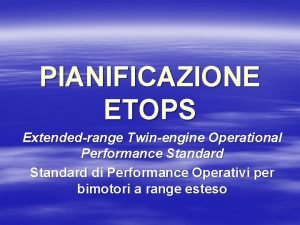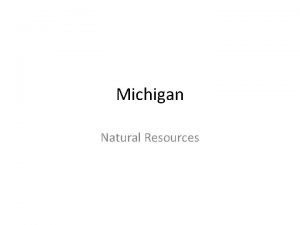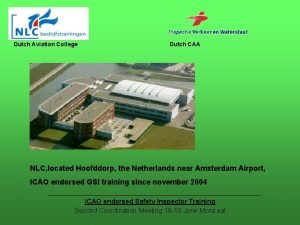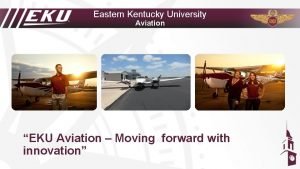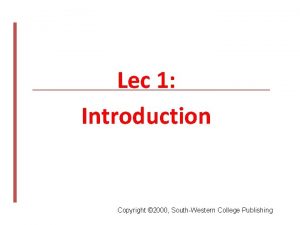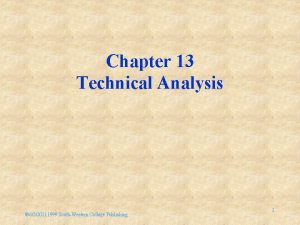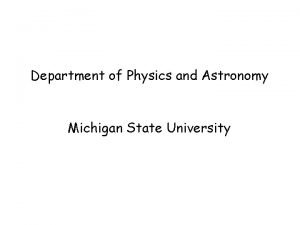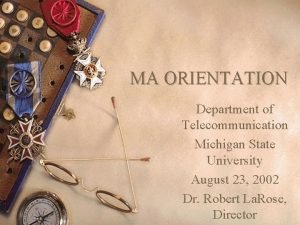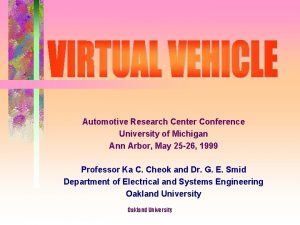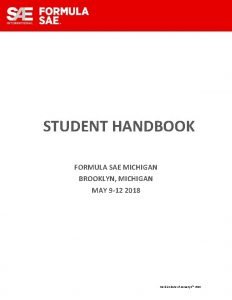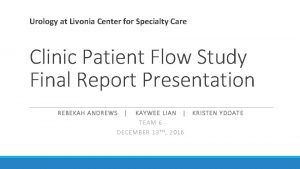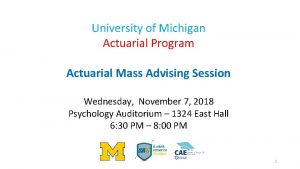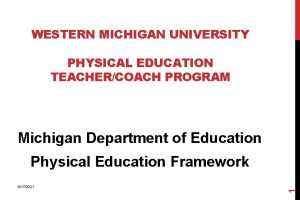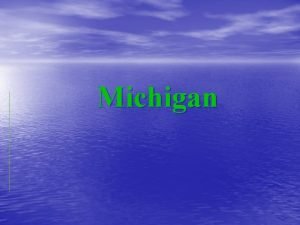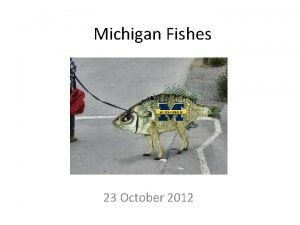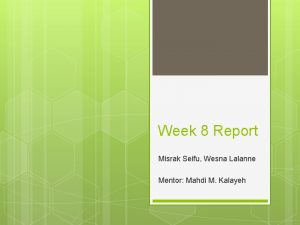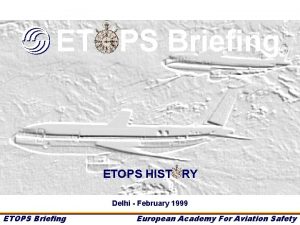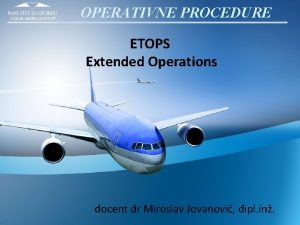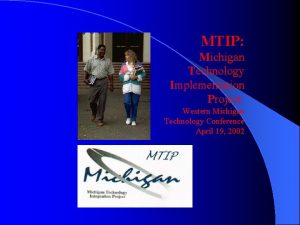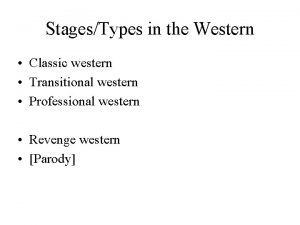Western Michigan University College of Aviation ETOPS Misrak



















- Slides: 19

Western Michigan University College of Aviation ETOPS Misrak Joseph December 6 th, 2006

An Overview of the Project Extended-range Twin-engine Operational Performance Standards (“ETOPS”) Created by the ICAO AKA Engines Turning Or Passengers Swim It makes international flights feasible Its main advantages are for flying over: 1. Desert 2. Ocean 3. Polar routes ETOPS is known by most pilots as Equal Time Point ICAO, set regulations to allow airlines to have the right equipments such as skilled pilots, flight crews, and flight engineers

History In 1919, first nonstop transatlantic flight was made In 1958, FAA created the “ 60 -minutes rule” The ICAO started to required the “ 90 -minutes rule” In 1974, Airbus manufactured its first wide-body A 300 Boeing Challenged Airbus by manufacturing the B 757 & B 767 The FAA & the ICAO set requirement called the ETOPS Regulations

Beginning of Transatlantic Routes In 1985, the FAA granted its 1 st approval for ETOPS procedures TWA was given for its B 767 the 1 st ETOPS approval TWA was permitted for ETOPS-90 then ETOPS-120

Development of ETOPS The ETOPS-180 was created 95% of the earth’s surface available to ETOPS flights Boeing started to subsidized nations to build diversion airports Proving Test helped increase change ETOPS-180 to ETOPS-207 for B 777 The JAA/the FAA disagreement about changes of ETOPS Regulations B 777, the JAA rated ETOPS-120 & the FAA rated ETOPS-180

Qualifications for ETOPS Two requirements to be approved to fly ETOPS 1. ETOPS Type approval 2. ETOPS Operational approval

Types of ETOPS There are four types of ETOPS ratings 1. ETOPS-75 2. ETOPS-90 3. ETOPS-120 4. ETOPS-180/207 Airbus, A 300 is legally operating under ETOPS-90 rules Most airlines are approved for ETOPS-120/138 95% of the earth’s surface is cover with ETOPS-180/207 Boeing has proposed rating beyond ETOPS-180/207 to ETOPS-240 to FAA This change was given with possible 330 minutes certificates ETOPS-240 hasn’t been standardized in Europe up to the present date.

Polar Routes & Its Benefits There is a nonstop flight for N. A. to Asia through the North Pole This method is used under the permission granted for flight into Russian airspace A Bilateral agreement was made in 1994 The cross-polar routes take international flights over previously un-travel territory B 747 & B 777 operate nonstop flights to Asia through the polar routes Benefits of polar routes is to give direct flights from N. A. to Asia countries The three vital benefits of the polar routes are: 1. Reduced operating Cost 2. Lower emissions 3. More competitive fares for passenger











Works Cited http: //www. answers. com/topic/etops-lrops http: //www. cnn. com The Federal Aviation Administration (FAA) International Civil Aviation Organization (ICAO) Joint Aviation Authorities (JAA) European Aviation Safety Agency (EASA)
 Etops 120 map
Etops 120 map Western michigan university msw
Western michigan university msw Western lower peninsula michigan
Western lower peninsula michigan 詹景裕
詹景裕 Nlc hoofddorp
Nlc hoofddorp Eastern kentucky university aviation
Eastern kentucky university aviation Michigan college access network
Michigan college access network Southwestern college publishing
Southwestern college publishing South-western college publishing
South-western college publishing South western college publishing
South western college publishing South-western college pub
South-western college pub University of michigan
University of michigan Michigan state university astronomy
Michigan state university astronomy Michigan state orientation
Michigan state orientation Scott page university of michigan
Scott page university of michigan University of michigan automotive research center
University of michigan automotive research center University of michigan formula sae
University of michigan formula sae Value stream
Value stream University of michigan actuarial science
University of michigan actuarial science Nine dot problem
Nine dot problem
